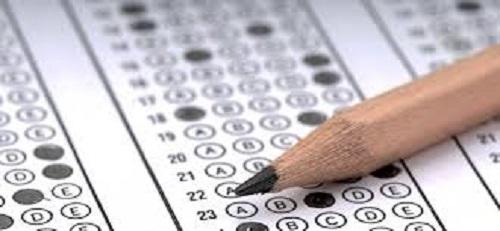
Need to tackle exam malpractice,
One of the greatest threats to Nigeria’s educational system today is examination malpractice. It has spread across secondary schools, tertiary institutions, and even professional qualifying exams, eroding the credibility of our certificates. In 2025, the West African Examination Council, WAEC, withheld the results of 192,089 candidates over malpractice allegations, while in 2024, no fewer than 215,267 results were similarly held back.
The National Examination Council, NECO, withheld 12,030 results in 2023 and another 8,437 in 2024. The Joint Admissions and Matriculation Board, JAMB, is not exempt from this disturbing trend. The Minister of Education, Tunji Alausa, has rightly warned that examination malpractice discourages hardworking students and undermines merit.
However, tackling the menace requires more than pronouncements; it requires strict enforcement. This is why we align with the Catholic Bishops of the Owerri Ecclesiastical Province, who have called on governments to enforce the Examination Malpractice Act of 1999. The Act prescribes penalties ranging from fines to imprisonment for offenders. Yet, over two decades after its passage, implementation remains weak.
Arrests are rare, and convictions even rarer, emboldening students, parents, teachers and officials to continue the crime with impunity. The consequences are clear. Today, Nigeria produces graduates who cannot defend their certificates or perform competently in the workplace.
Employers lament the poor quality of manpower, while the culture of cheating in school feeds the wider corruption in society. Examination malpractice is not merely an academic offence—it is a crime against national development.
To end this cankerworm, all stakeholders must act. Parents who source for “special centres,” teachers who betray their duties, and invigilators who look away should be prosecuted. Rogue schools and corrupt principals must be identified and blacklisted. Section 16 of the Act empowers examination bodies to withhold or cancel results and to ban candidates caught cheating. These provisions must be fully applied.
Punishment should not stop at students. Teachers and officials found culpable should lose their licenses in addition to facing criminal penalties. Parents who finance malpractice syndicates must not be spared. Without deterrence, the rot will persist. We commend the Ministry of Education’s efforts to strengthen monitoring systems during examinations, but technology and surveillance alone will not solve the problem. Enforcement is key.
The police and judiciary also have a vital role in ensuring swift prosecution of offenders, particularly operators of “special centres” and rogue websites that leak examination papers. Nigeria cannot afford to raise a generation that prizes shortcuts over merit. To restore credibility and dignity to our education system, the Exam Malpractice Act must be enforced decisively and without fear or favour.
Laws without enforcement are worthless. If Nigeria is serious about building leaders who can compete and be respected globally, then the call to action is clear: strengthen the educational system and enforce the Exam Malpractice Act now.
The post Need to tackle exam malpractice appeared first on Vanguard News.
,
One of the greatest threats to Nigeria’s educational system today is examination malpractice. It has spread across secondary schools, tertiary institutions, and even professional qualifying exams, eroding the credibility of our certificates. In 2025, the West African Examination Council, WAEC, withheld the results of 192,089 candidates over malpractice allegations, while in 2024, no fewer than […]
The post Need to tackle exam malpractice appeared first on Vanguard News.
, , Emmanuel Okogba, {authorlink},, , Vanguard News, September 8, 2025, 12:28 am











